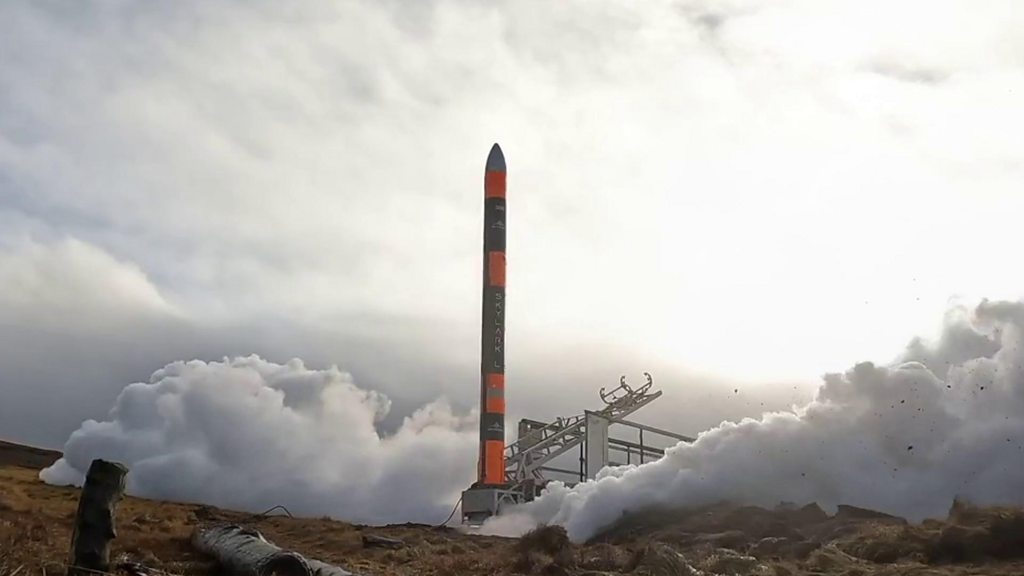The First Skyrora Space Launch Crashes Into The Sea Off The Coast Of Iceland
The first Skyrora space launch crashes into the sea off the coast of Iceland. The booster from the British rocket company's failed mission to reach space was lost at sea a short time after liftoff.
Author:Suleman ShahReviewer:Han JuOct 13, 20222 Shares547 Views

The first Skyrora space launch crashes into the sea off the coast of Iceland. The booster from the British rocket company's failed mission to reach space was lost at sea a short time after liftoff.
The company's headquarters are located in Edinburgh, and one of its goals was to fly their Skylark L vehicle from the Langanes peninsula in Iceland to a distance greater than 100 kilometers. However, a mechanical issue caused the rocket, which measured 11 meters in length, to crash into waters located no more than 500 meters from the launch pad.
Skyrora intends to begin orbital launch operations from Scotland in the following year. These will take place at the Saxavord Spaceport, which is now under construction in Shetland.
They will be utilizing the Skyrora XL, which is a significantly larger vehicle. The flight of the Skylark L that took place over the weekend was planned to provide as an early opportunity to test various systems and procedures.
According to Volodymyr Levykin, the founder and CEO of Skyrora:
“„While this launch attempt did not go entirely as we expected, it has nevertheless been a valuable learning opportunity - and a huge victory for this new relationship between Iceland and the UK, as well as the European space sector more broadly. Based on what we have achieved here, we remain confident of achieving our objective of a full vertical orbital launch from UK soil in 2023.- Volodymyr Levykin, the founder and CEO of Skyrora
In order to travel into space, Skyrora is taking things slowly and methodically. Up to this point, it has only flown small supersonic vehicles inside the atmosphere, at an altitude of less than 30 kilometers.
The Skylark L mission was the first attempt to cross the Karman Line, which is the globally recognized boundary between aeronautics and astronautics. This line denotes the transition from aeronautics to astronautics.
Skylark L is a kerosene and hydrogen peroxide-fuelled "sounding rocket". Its purpose is to provide scientific payloads with a few minutes of weightlessness in which to carry out their research. The rocket is considered to be sub-orbital because it is not designed to reach altitudes high enough or travel at speeds fast enough to remain in the air.
However, the payloads that will be carried by the upcoming Skyrora XL will be directed at orbital altitudes. Static fire tests have been performed on the 3D-printed engines that power this 23m vehicle, and the business is committed to carrying out its first mission in 2023.
The United Kingdom's first "vertical" rocket flights will take place in Scotland, as that was the location chosen for the project.
Conclusion
In Cornwall, preparations are being made to launch "horizontal" rockets. It is anticipated that the entrepreneur Sir Richard Branson's company, Virgin Orbit, will launch its first mission out of Newquay the following month. Rockets developed by Virgin are launched into orbit under the wing of a 747 passenger jet that has been modified for the purpose.
Jump to

Suleman Shah
Author
Suleman Shah is a researcher and freelance writer. As a researcher, he has worked with MNS University of Agriculture, Multan (Pakistan) and Texas A & M University (USA). He regularly writes science articles and blogs for science news website immersse.com and open access publishers OA Publishing London and Scientific Times. He loves to keep himself updated on scientific developments and convert these developments into everyday language to update the readers about the developments in the scientific era. His primary research focus is Plant sciences, and he contributed to this field by publishing his research in scientific journals and presenting his work at many Conferences.
Shah graduated from the University of Agriculture Faisalabad (Pakistan) and started his professional carrier with Jaffer Agro Services and later with the Agriculture Department of the Government of Pakistan. His research interest compelled and attracted him to proceed with his carrier in Plant sciences research. So, he started his Ph.D. in Soil Science at MNS University of Agriculture Multan (Pakistan). Later, he started working as a visiting scholar with Texas A&M University (USA).
Shah’s experience with big Open Excess publishers like Springers, Frontiers, MDPI, etc., testified to his belief in Open Access as a barrier-removing mechanism between researchers and the readers of their research. Shah believes that Open Access is revolutionizing the publication process and benefitting research in all fields.

Han Ju
Reviewer
Hello! I'm Han Ju, the heart behind World Wide Journals. My life is a unique tapestry woven from the threads of news, spirituality, and science, enriched by melodies from my guitar. Raised amidst tales of the ancient and the arcane, I developed a keen eye for the stories that truly matter. Through my work, I seek to bridge the seen with the unseen, marrying the rigor of science with the depth of spirituality.
Each article at World Wide Journals is a piece of this ongoing quest, blending analysis with personal reflection. Whether exploring quantum frontiers or strumming chords under the stars, my aim is to inspire and provoke thought, inviting you into a world where every discovery is a note in the grand symphony of existence.
Welcome aboard this journey of insight and exploration, where curiosity leads and music guides.
Latest Articles
Popular Articles